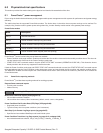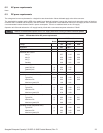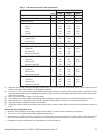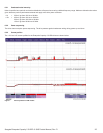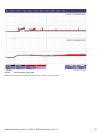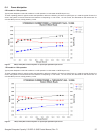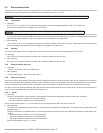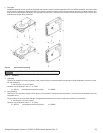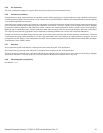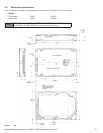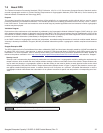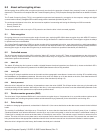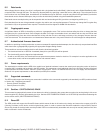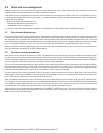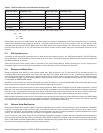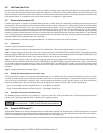Seagate Enterprise Capacity 2.5 HDD v3 SAS Product Manual, Rev. D 30
6.5.5 Air cleanliness
The drive is designed to operate in a typical office environment with minimal environmental control.
6.5.6 Corrosive environment
Seagate electronic drive components pass accelerated corrosion testing equivalent to 10 years exposure to light industrial environments
containing sulfurous gases, chlorine and nitric oxide, classes G and H per ASTM B845. However, this accelerated testing cannot duplicate
every potential application environment.
Users should use caution exposing any electronic components to uncontrolled chemical pollutants and corrosive chemicals as electronic
drive component reliability can be affected by the installation environment. The silver, copper, nickel and gold films used in Seagate
products are especially sensitive to the presence of sulfide, chloride, and nitrate contaminants. Sulfur is found to be the most damaging.
Materials used in cabinet fabrication, such as vulcanized rubber, that can outgas corrosive compounds should be minimized or eliminated.
The useful life of any electronic equipment may be extended by replacing materials near circuitry with sulfide-free alternatives.
Seagate recommends that data centers be kept clean by monitoring and controlling the dust and gaseous contamination. Gaseous
contamination should be within ANSI/ISA S71.04-2013 G2 classification levels (as measured on copper and silver coupons), and dust
contamination to ISO 14644-1 Class 8 standards, and MTBF rated conditions as defined in the Annualized Failure Rate (AFR) and Mean
Time Between Failure (MTBF) section.
6.5.7 Acoustics
Sound power during idle mode shall be 2.8 bels typical when measured to ISO 7779 specification.
Sound power during operating mode shall be 3.2 bels typical when measured to ISO 7779 specification.
There will not be any discrete tones more than 9 dB above the masking noise on typical drives when measured according to Seagate
specification 30553-001. There will not be any tones more than 24 dB above the masking noise on any drive.
6.5.8 Electromagnetic susceptibility
See Section 2.1.1.1.



